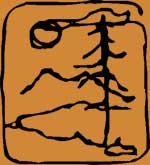
| Program Covenant |
| Program Description |
|
Kant Study Questions
Friday, March 2
Post your answers to each of these study questions, which were circulated on
Monday. I have set up discussion sites in Web-x (Mind and the World>Winter
quarter>Study
Questions on Kant>individual sites for each question). Treat these as
short essay answers, post a few thoughtful, concise sentences in response
to each question.
- Kant insists that we
have knowledge of synthetic a priori principles. What
would be examples of such principles? Why does Kant bring this
up so early in his critique: why does it matter to him?
- What’s wrong with
using pure concepts of the understanding in thinking about things-in-themselves? Can
they be used in making judgments about things-in-themselves?
- What does Kant understand nature to
be?
- Philosophers frequently
offer conceptual distinctions, e.g.: Plato, between knowledge and opinion;
Aristotle, between primary and secondary substance;
Bacon between idol and true induction; Descartes,
between formal and objective being; Leibniz, between apperception and perception…Give
examples of critical distinctions drawn by Kant and state why they
are important in his philosophy of mind.
- Kant identifies himself as a “transcendental idealist.” What other kinds of “idealism” are there and how do they differ from Kant’s position?
